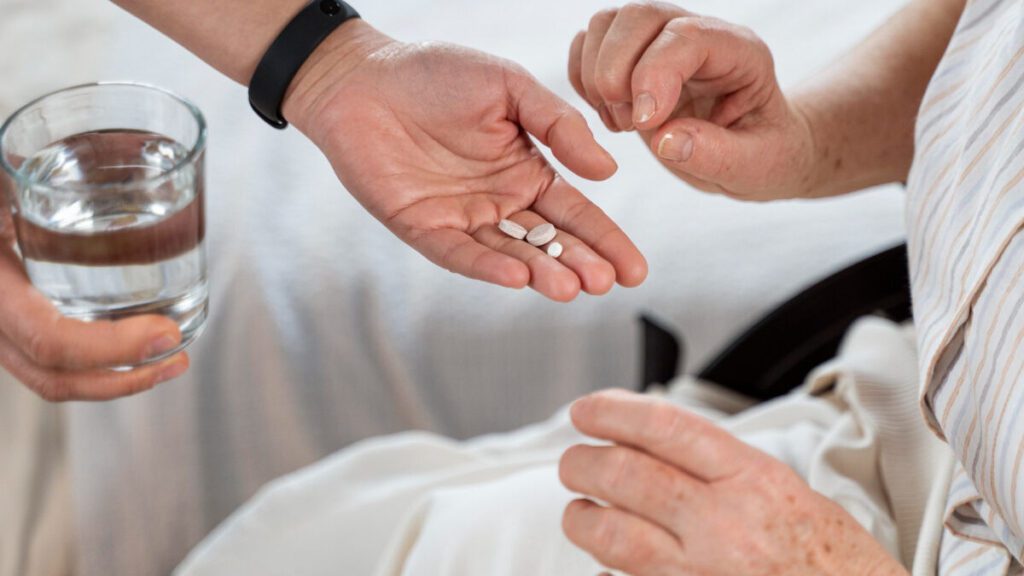Introduction
We all know that smoking is harmful to our health, but have you ever wondered how it affects your body’s hydration levels? You might be surprised to learn that smoking dehydrates you in more ways than one. Whether you’re a casual smoker or someone struggling to quit, understanding how smoking impacts your body’s ability to stay hydrated can be a real eye-opener.
- Introduction
- The Link Between Smoking and Dehydration
- Does Smoking Dehydrate Your Skin? The Visible Effects on Skin Health
- How Smoking Contributes to Dry Skin and Premature Aging
- The Long-Term Effects of Dehydration from Smoking
- Does Vaping Dehydrate You More Than Cigarettes?
- Does Nicotine Dehydrate You? Breaking Down the Effects of Nicotine
- Real-Life Anecdote: "I Didn't Realize How Much Smoking Was Drying Me Out"
- Step-by-Step Guide: How to Combat Dehydration from Smoking
- The Road to Quitting and Staying Hydrated
- Conclusion: Take Control of Your Hydration and Health
This article will uncover how smoking dehydrates you and why staying hydrated is crucial for your well-being. We will also offer some tips to help minimize dehydration if you’re trying to quit or reduce smoking. By the end, you’ll have a clearer picture of how this bad habit dries out your body and how you can take steps to reverse the damage.
The Link Between Smoking and Dehydration
So, how does smoking dehydrate you exactly? When you smoke, several processes kick into action that interfere with your body’s natural hydration balance. Let’s break it down:
- Nicotine is a Diuretic: When nicotine enters your body, it stimulates the production of adrenaline, which in turn makes your kidneys produce more urine. This means that smokers tend to lose more water than non-smokers, leading to dehydration. The exact process happens when you drink coffee or tea; both contain caffeine and act as diuretics.
- Dry Mouth: Have you ever noticed how your mouth feels dry after smoking a cigarette? That’s because smoking reduces saliva production. Saliva is essential for keeping your mouth moist and aiding in digestion. Without it, not only do you feel thirsty, but your body isn’t absorbing water properly.
- Increased Breathing Rate: Smoking increases your heart rate and breathing rate. When you breathe more rapidly, you lose moisture through respiration. This is why people often feel out of breath and experience a dry throat when smoking for extended periods.
- Toxic Chemicals Affect Cellular Hydration: Cigarettes contain over 7,000 chemicals, and many of these disrupt your body’s cellular hydration processes. Chemicals like acetone and ammonia damage the cells responsible for maintaining proper water balance, leading to dehydration at the cellular level.
Does Smoking Dehydrate Your Skin? The Visible Effects on Skin Health
One of the most apparent signs that smoking dehydrates you is the toll it takes on your skin. But how exactly does smoking dehydrate your skin?
Smoking restricts blood flow, depriving your skin of the essential oxygen and nutrients to stay healthy. This causes your skin to become dry, dull, and prone to premature aging. The chemicals in cigarettes, such as nicotine and tar, damage collagen and elastin, the proteins that give your skin its elasticity and youthful appearance. Without proper hydration, your skin loses its glow, leading to wrinkles and sagging.
Smoking also decreases your body’s ability to retain moisture. This lack of hydration can cause your skin to feel rough and appear flaky. Many smokers experience dry patches, cracked lips, and an overall loss of skin vitality.
For more information on the relationship between smoking and skin dehydration, visit this resource on skin health.
How Smoking Contributes to Dry Skin and Premature Aging
One of the most visible signs that smoking dehydrates you is in your skin. Many smokers notice their skin becoming dry, dull, and more prone to wrinkles. This happens because smoking:
- Reduces blood flow to the skin, making it harder for your skin to receive the oxygen and nutrients it needs to stay healthy.
- Destroys collagen and elastin, the proteins that keep your skin youthful and firm. Without enough hydration, your skin loses its elasticity, leading to premature aging.
- Increases oxidative stress, which damages skin cells and accelerates the aging process. This is why smokers often look older than they are.
The Long-Term Effects of Dehydration from Smoking
Dehydration isn’t just about feeling thirsty; it can have serious long-term consequences on your health. Here’s what could happen if your body stays in a state of chronic dehydration due to smoking:
- Kidney damage: Your kidneys play a vital role in filtering out toxins from your blood. But when you’re dehydrated, your kidneys have to work much harder, increasing your risk of developing kidney stones or even kidney disease over time.
- Heart problems: Dehydration thickens the blood, forcing the heart to work harder to pump it throughout the body. Smokers already have an increased risk of heart disease, and dehydration compounds this risk.
- Joint pain: Smoking depletes your body’s hydration levels, leading to joint pain and stiffness, especially as you age. Water helps cushion your joints, so when you’re dehydrated, you may notice more discomfort in your knees, elbows, and hips.
- Weakened immune system: When dehydrated, your body struggles to flush out toxins effectively. This can leave your immune system vulnerable to infections, making you more prone to illnesses like colds, flu, and lung infections.
Does Vaping Dehydrate You More Than Cigarettes?
With the rise in popularity of vaping, many people wonder: Does vaping dehydrate you more than cigarettes?
While vaping is often marketed as a “safer” alternative to smoking, it still comes with risks—dehydration being one of them. The main culprit is propylene glycol, a common ingredient in e-liquids. Propylene glycol is a humectant, meaning it absorbs moisture. When inhaled, it pulls moisture from your mouth, throat, and even the surrounding air, causing a feeling of dryness. This effect can sometimes feel more pronounced than traditional smoking.
Though both smoking and vaping can dehydrate you, vaping tends to dry out the throat and mouth faster due to the way vapor interacts with your body. Regular vapers often experience dry mouth, a persistent thirst, and even sore throat—typical signs of dehydration.
To understand how vaping impacts hydration, check out this article on vaping and dehydration.
Does Nicotine Dehydrate You? Breaking Down the Effects of Nicotine
So, does nicotine dehydrate you directly?
Nicotine acts as a diuretic, which means it causes your body to lose more fluids than usual. It stimulates adrenaline production, speeding up your metabolism and increasing urine output. When you lose more water than your body can replace, it leads to dehydration. This is why many smokers and vapers frequently feel thirsty or experience dry mouth after using nicotine products.
Not only does nicotine cause fluid loss, but it also interferes with the body’s ability to retain water at a cellular level. This leads to dry skin, fatigue, and a general sense of sluggishness—all common symptoms of dehydration.
Learn more about nicotine’s diuretic effect by visiting this page on nicotine and hydration.
Real-Life Anecdote: “I Didn’t Realize How Much Smoking Was Drying Me Out”
Sarah, a 32-year-old former smoker, recalls her experience:
“Throughout the ten or twelve years that I smoked, I was constantly thirsty. My skin was dry, I had cracked lips, and I assumed that was normal. I didn’t connect the dots that smoking dehydrates you so badly. It wasn’t until I quit that I noticed how much better I felt. I started drinking more water, and my skin improved dramatically. I wish I had known earlier!”
Sarah’s story is a common one. Many smokers only realize the extent of their dehydration once they quit or cut back, which is why understanding this connection is so important.
Step-by-Step Guide: How to Combat Dehydration from Smoking
If you’re still smoking and struggling with dehydration, don’t worry—there are steps you can take to minimize the damage. Here’s a quick tip to keep you hydrated:
- Drink More Water: This might seem obvious, but many smokers forget to compensate for losing water. Aim for at least 8-10 glasses of water daily, and more if you smoke frequently.
- Eat Hydrating Foods: Cucumbers, watermelon, oranges, and leafy greens are high in water content. Adding them to your diet can help replenish lost fluids.
- Avoid Diuretics: Cut back on other diuretics, such as coffee, tea, and alcohol. These beverages will only increase fluid loss and make dehydration worse.
- Use a Humidifier: If you smoke indoors, using a humidifier can help add moisture to the air, making it easier for your body to retain water.
- Quit or Reduce Smoking: Of course, the best way to combat dehydration from smoking is to quit altogether. If quitting seems too tricky right now, reducing the number of cigarettes you smoke each day can make a difference.
The Road to Quitting and Staying Hydrated
Quitting smoking is never easy, but the benefits go far beyond just reducing dehydration. Not only will your skin, hair, and body start to rehydrate, but you’ll also reduce your risk of severe health issues like lung cancer, heart disease, and stroke.
There are many resources available to help you quit smoking, from nicotine patches and gums to counseling and support groups. The key is to take it one day at a time and remind yourself of the many benefits of quitting—hydration is one of them.
Conclusion: Take Control of Your Hydration and Health
Now that you understand how smoking dehydrates you, it’s time to take control of your health and hydration. Whether you’re ready to quit smoking or want to reduce your habit, knowing the hidden impact of smoking on your body’s water balance is a significant first step.
Start by drinking more water, adding hydrating foods to your diet, and paying attention to the signs of dehydration. And if you’re ready to quit, know that the benefits will extend far beyond just feeling less thirsty—you’ll be giving your body the care and attention it deserves.


